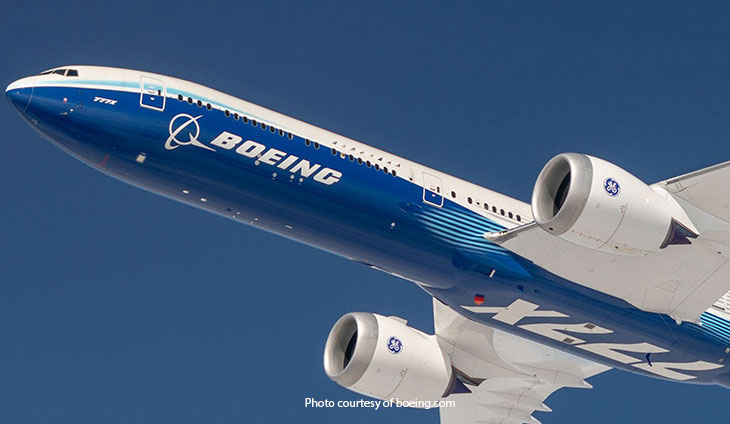US flight regulators said on Friday that they are looking into potential safety concerns following the discovery of titanium with fake authentication on commercial aircraft.
According to a New York Times story, titanium found in aircraft sold to airlines by both Airbus and Boeing appears to have originated from a Chinese company where a worker falsified information on certificates.
Industry representatives stated on Friday that they do not think the problem immediately poses a safety concern to operating aircraft, based on tests done on the titanium.
The problem arises while the aerospace sector is under increased scrutiny due to recent manufacturing and safety problems at Boeing.
A Federal Aviation Administration official stated, “Boeing reported a voluntary disclosure to the FAA regarding procurement of material through a distributor who may have falsified or provided incorrect records.”
“The FAA is investigating the scope and impact of the issue through our Continued Operational Safety process.”
According to The Times, the titanium in question was used on Airbus A220 and Boeing 737 and 787 Dreamliners. The Times stated that the aircraft were constructed between 2019 and 2023, although it was unclear who owned or how many aircraft were impacted.
Spirit AeroSystems, which manufactures fuselages and other major components for Boeing and Airbus, believes the problem is related to a single batch of titanium that got into the supply chain via authorised vendors, according to Spirit spokesman Joe Buccino.
Spirit’s extensive testing has demonstrated that the titanium is of the right grade for usage on aircraft. But according to Buccino, paperwork is the problem.
Buccino informed AFP, “The documentation is counterfeit.” “The titanium is good.
“The issue is we can’t trace it back to its origin,” he stated. “We determined there’s no safety of risk issue.”
Instead of receiving the titanium as a raw material, Spirit received it in sections from subcontractors, according to Buccino.
In light of the problem, Boeing stated that it will remove the titanium on undeliverable aircraft. Operating aircraft “can continue to fly safely,” according to the manufacturer.
“This industry-wide issue affects some shipments of titanium received by a limited set of suppliers, and tests performed to date have indicated that the correct titanium alloy was used,” Boeing stated.
An AFP inquiry was not immediately answered by Airbus. According to Airbus’s statement to the Times, component testing indicates that “the A220’s airworthiness remains intact.”
Following a January incident on an Alaska Airlines flight where a fuselage panel blew off mid-flight, Boeing in particular has been in the news recently.
Dave Calhoun, the CEO of the business, will testify before a Senate committee looking into safety issues the following week.
Separately, the National Transportation Safety Board announced on Friday that it has launched an investigation into a Southwest Airlines Boeing 737 MAX aircraft from Phoenix to Oakland that had “Dutch roll,” or oscillating motion.
The NTSB stated on X that the carrier reported structural component damage on the flight of May 25, although there were no injuries reported.


Comments are closed, but trackbacks and pingbacks are open.